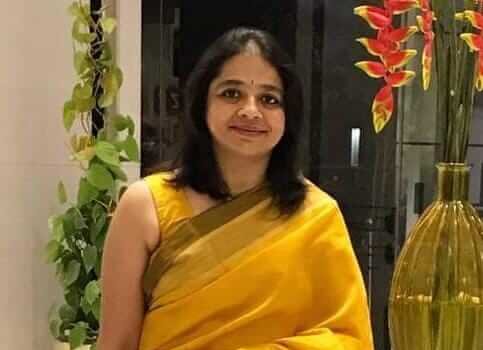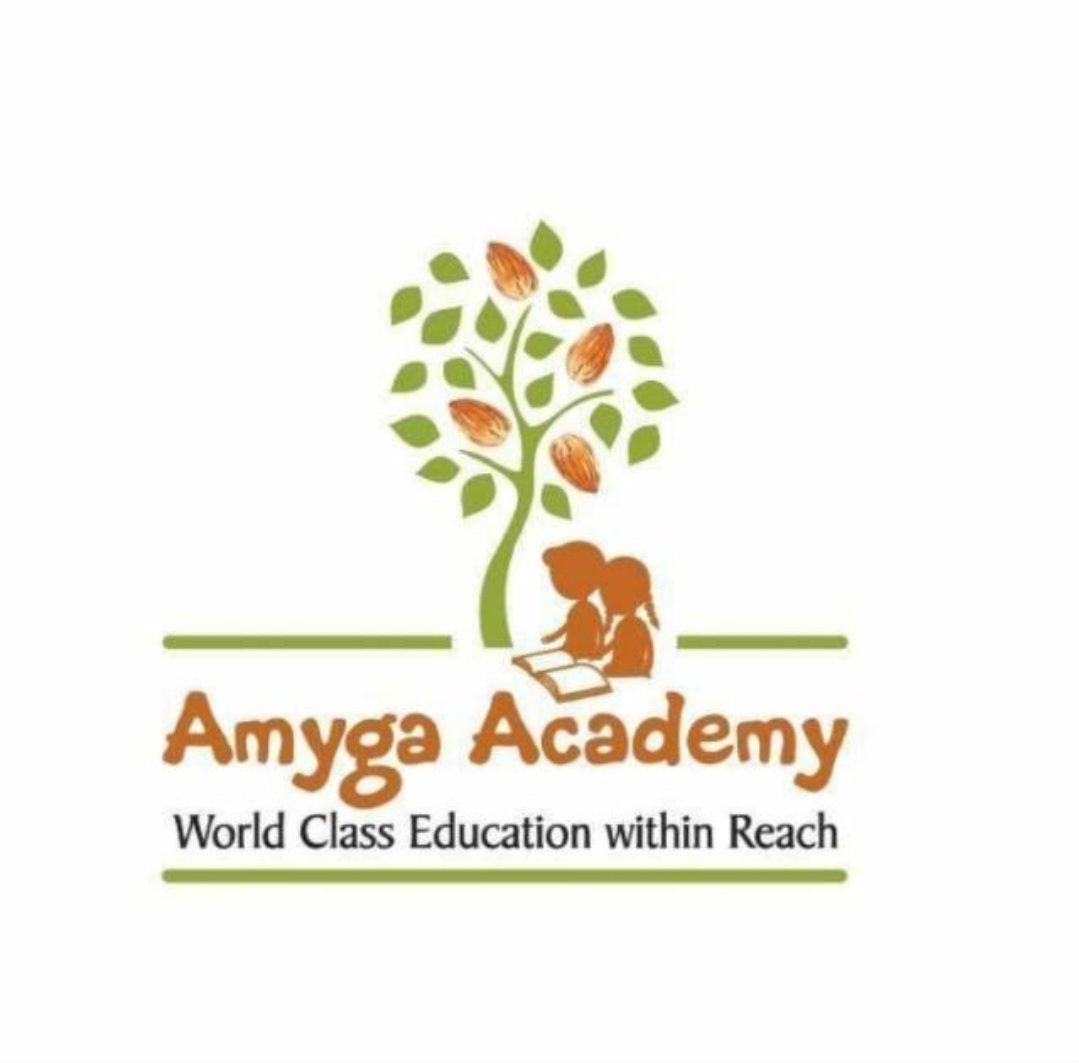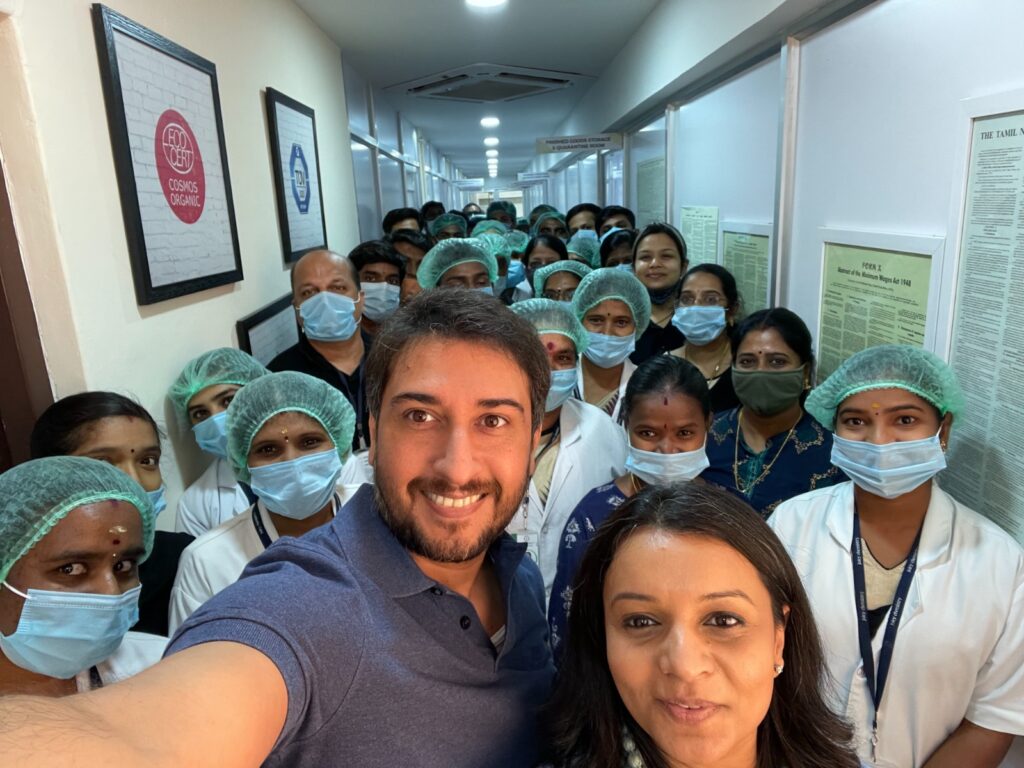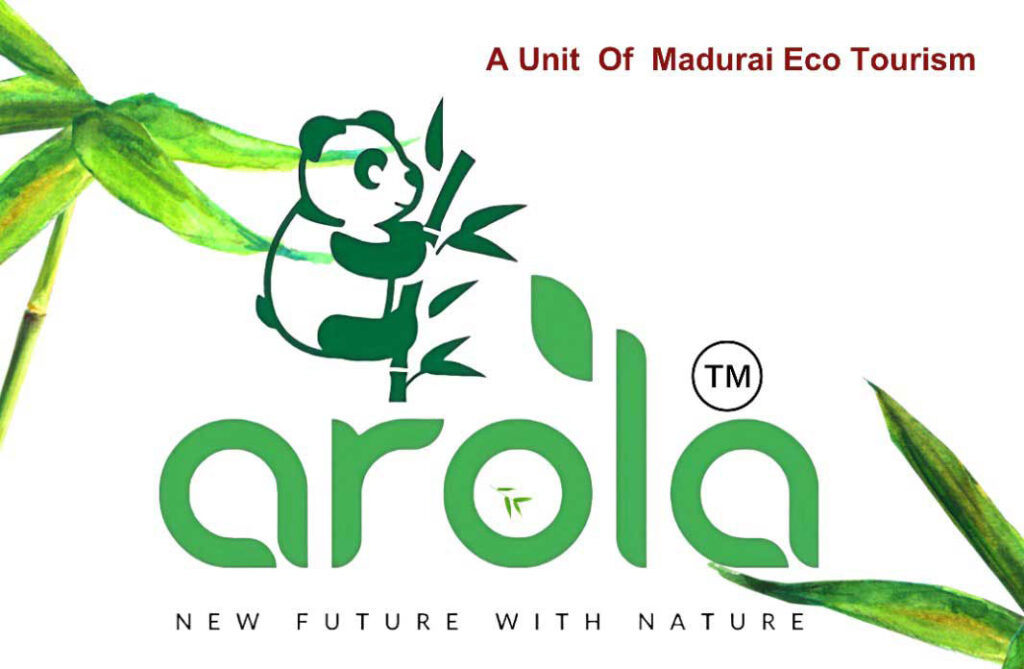“Everyone refers to us as the school that provides the teachers with electric vehicles!” chuckles Lakshmi Ramamurthy, founder of Amyga Academy. The Academy is paving the way to world-class education in remote villages around India while empowering the rural women who contributed to the local rural schools—also known as the Anganwadi.
Lakshmi’s career started in Bangalore as a Chartered Accountant. The first ten years of her career were all about finance and had very little to do with education. “It is still strange,” she recollects looking into a distance, “My switch from finance to education,” she adds while laughing.
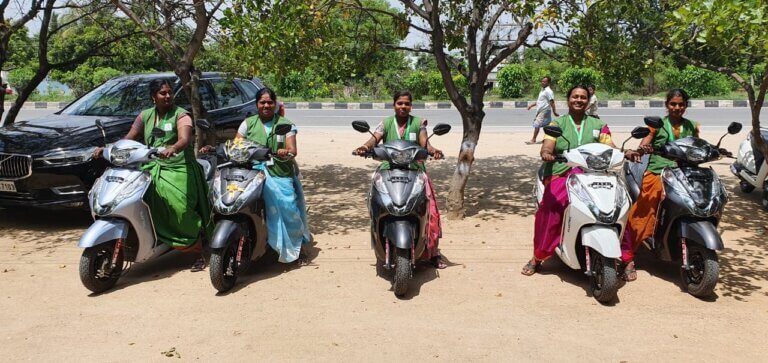
The Chartered Accountant applied for an operations role at the finance and accounting wing of Capgemini. At the job interview, she was greeted by an HR who was impressed by her resume but did not have a suitable opening for her.
“Just as we got up and shook hands she stopped mid-way,” remembers Lakshmi, “The HR revealed that they were desperately looking for someone to lead the finance and accounting training department.” The job description piqued her interest. She was also thrilled to create and head a team on her own. As a result, she accepted the offer on the spot.
“Setting up something new is not easy, especially when you are new to the organisation,” she describes as she professes her love for challenging opportunities. Within a couple of years, the team grew from a one-woman army to a team of twenty. The imminent success of the training wing motivated Lakshmi to start thinking about creating her own impactful venture.
“Around the same time, I came across a report by UNICEF on early childhood education in the world and India in particular,” she says. At that instant, she knew that while educating people in corporate gave her happiness, early-age education was where the real impact lies.
Circa 2017, Lakshmi and her husband started a private school registered as Amygdala (named after the part of the brain that controls motivation and behaviour). They were looking around for an existing facility that they could lease to grow the school. That is when they came across a property in a town called Kaveripattinam in the Krishnagiri district.
The school was branded as Amyga, a simplified version of Amygdala for easy pronunciation. June 2018 marked the first academic year at the primary school. “The fees were kept minimal, just to meet the costs,” she divulges.
The number of students enrolled in the school grew from eight to seventeen by the end of the first academic year. Eventually, there were twenty-six students receiving Montessori education at the primary school. However, as the school began to grow, several administrative time and cost-intensive procedures came to light. At that instant, Lakshmi knew that the system she was working with would not be the most effective way to increase access to a world-class education.
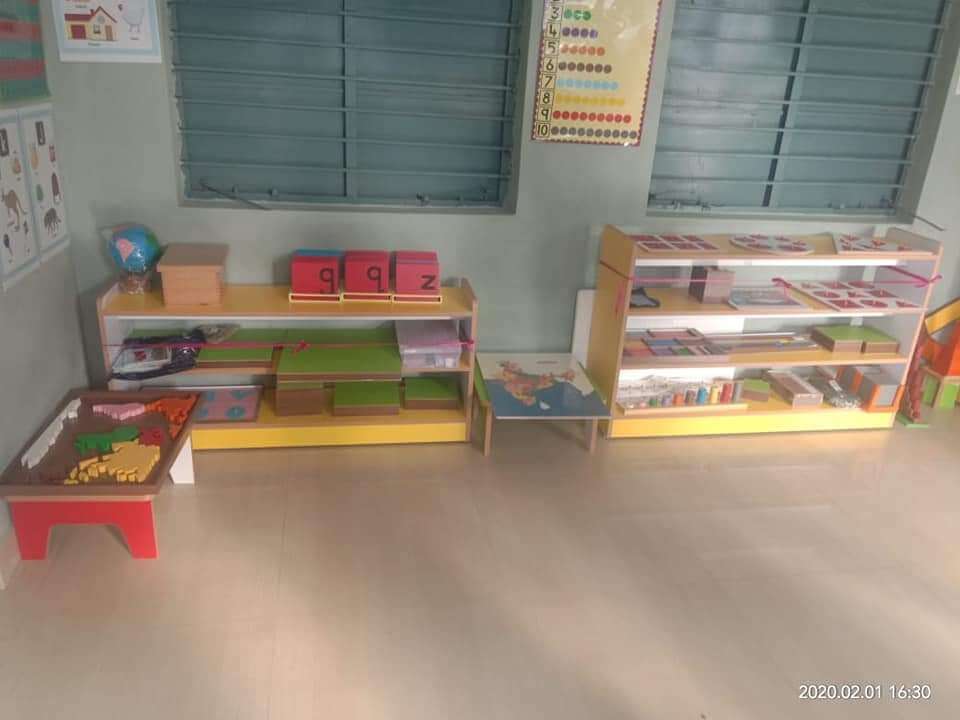
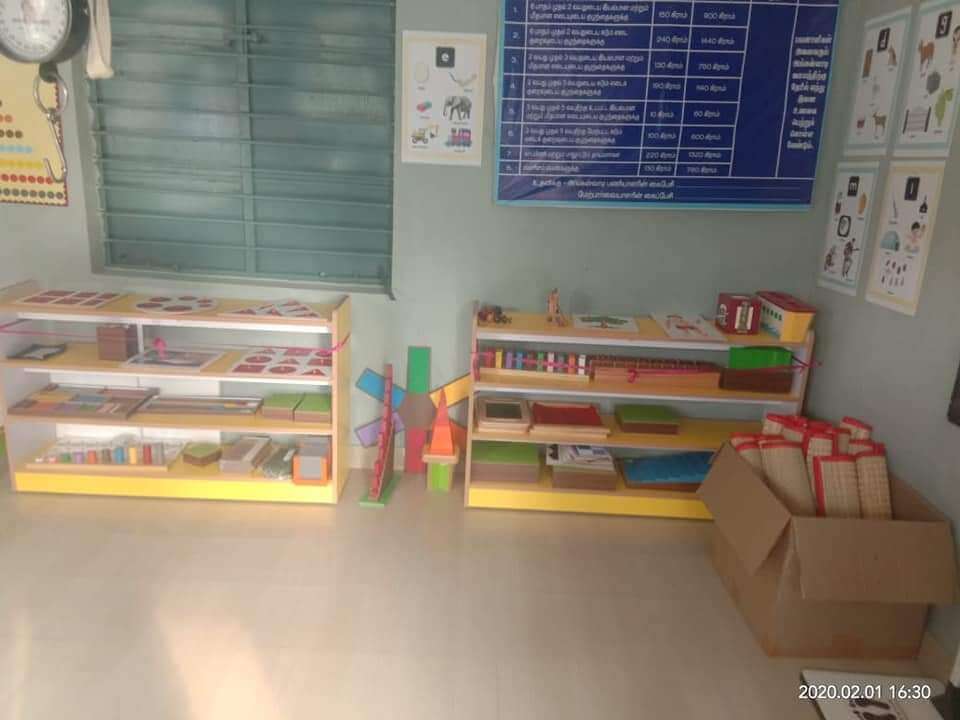
During the second academic year, around October 2019, she established Amyga Foundation, a charitable trust that would help provide free education to the children studying in local government-built anganwadis. “We completed the academic year at the school as we did not want to leave the children hanging,” she narrates as she describes the period of overlap between running the private school and starting the NGO.
Anganwadis have been established by the Department of Women and Child Development of the Government under the Integrated Child Development Services scheme through which the Government takes care of the health, nutrition and education of children under 6 years. The Foundation would supplement the efforts of the Anganwadi workers by imparting formal world-class early childhood education in these centres under the brand Amyga Academy. Amyga would deploy Montessori materials for children and English and Montessori training for teachers. The Academy’s free education program was designed to align with the curriculum recommended by the Government for Anganwadi children.
Ventures that aim to make an impact in rural India are always met with a unique set of challenges. Lakshmi’s experience was no different. Superstition and cultural differences would play a big role in the recruitment process. “I would wear a Bhindi and salwar and knock on the doors to talk to parents and grandparents about what we intended to do,” she recalls as she describes how the people in the village were initially sceptical about her intentions. She laughs as she narrates the various experiences she did not anticipate when she set out on the venture, “They even did a background check on me using my car’s number plate!”
Nevertheless, Lakshmi stayed resolute. She continued to stick posters around the village and talked to the teachers from the local Anganwadi. The people of the village recognised her determination and the effort she was putting into the well-being of their children. Slowly, they put down their guard and welcomed her and her organisation.
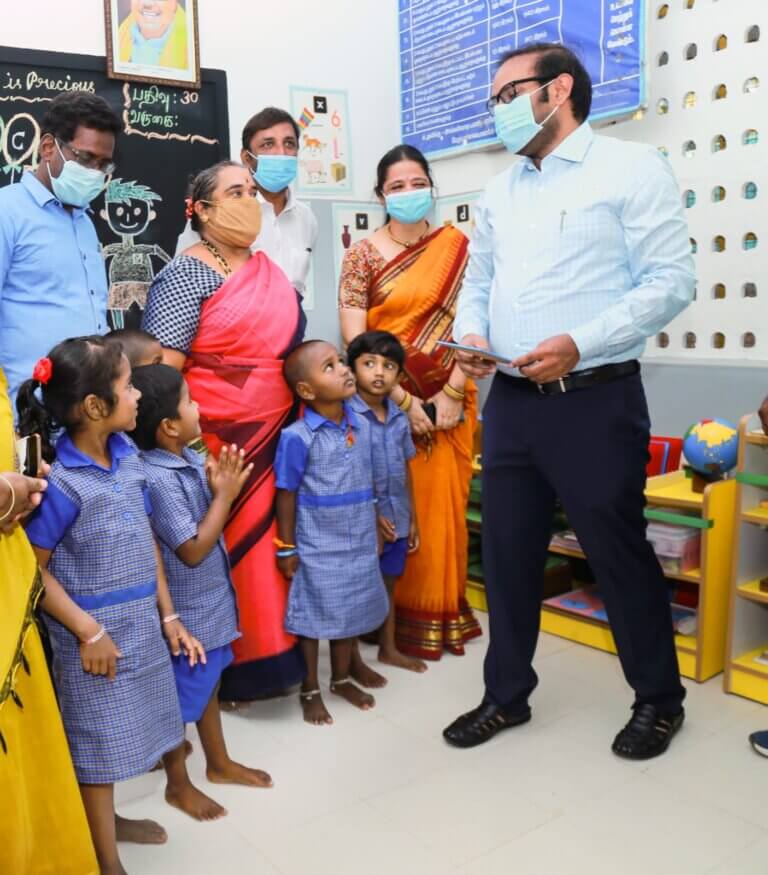
The pandemic brought Amyga’s activities to a brief halt. When the work resumed in November 2021, the Academy grew to accommodate five anganwadis in villages around Kaveripattinam, with a total of a hundred students. “Recently we realised that the environment is equally important for a child to learn,” she explains. This instigated the organisation to take up repair and renovation work to make the Anganwadi a safe space to learn. “By July two more centres will be brought under Amyga Academy. We will have a total of two hundred students that we have brought under our wing in about six months,” she reveals.
The Academy goes by the tagline—world-class education within reach. Amyga focuses on bringing education physically and financially within the reach of the rural population. “The Montessori system has proven to be successful amongst the younger age group,” reveals the founder. Thereby, Amyga also brings education within the intellectual reach of the children.
The teachers were recruited by word of mouth and are a pivotal part of the organisation. “We tell them that we will take care of their needs so that they can take care of the children’s needs.” The motto was pivotal in the decision to empower the teachers with electric scooters. It not only removed their dependence on their husbands to travel to work but also incentivised their families to encourage their career paths.
The teachers are taught English online, by Amyga’s volunteers from around the country. “Amyga Academy wouldn’t be where it is today but for our team of dedicated volunteers who coach our teachers in spoken English all year round,” says Lakshmi. Amyga also partnered with Bangalore-based early education solutions company, Kreedo, to provide Montessori training to the teachers. “I still remember going to each of the teachers’ houses to ask for permission to take them to Bangalore for a week-long Montessori training workshop,” she smiles as she recalls how the families were uncomfortable with the idea at first. Eventually, Amyga Academy aims to design a sustainable online system for Montessori training and English classes.
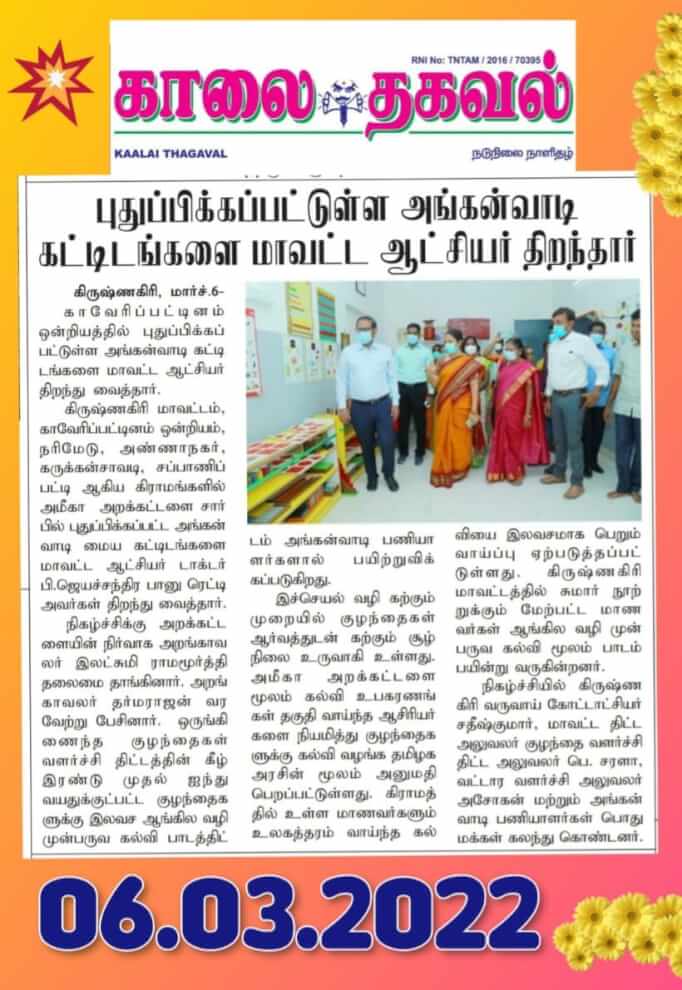
In the last four years, Lakshmi has witnessed her impact through interactions with the students and parents’ feedback. The ambitious entrepreneur has taken up a new challenge as she expands to a local tribe group in B.R. Hills in Karnataka. “The children there have much less exposure to the things we see everyday,” she says as she narrates an incident from a class about a railway station. However, a bigger challenge looms in these remote tribal villages—teachers with a graduate degree within the community are rare.
“The venture has given me more excitement and fulfilment in the last four years than my twenty-year-long corporate life,” she laughs as she dives into a series of heartwarming anecdotes from the classroom.
If you are interested in contributing you may reach out to the organisation through the following link: https://www.amyga.org/get-involved

